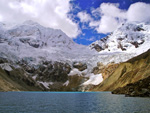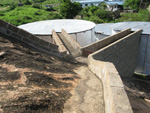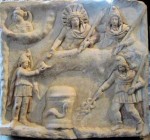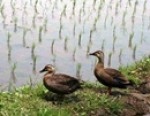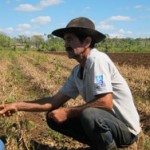Students in Haitian Central Plateau Initiated Into Vegetable Gardening | Des élèves au Plateau Central s’initient à la culture maraîchère
By Ronel Odatte (kft rc), AlterPresse | Translated by Dady Chery, Haiti Chery. The National School of Bassin Zim in Haiti’s Central Plateau has become an establishment where students are letting their enthusiasm be known for consuming local products. The program is being expanded.
Continue reading →




